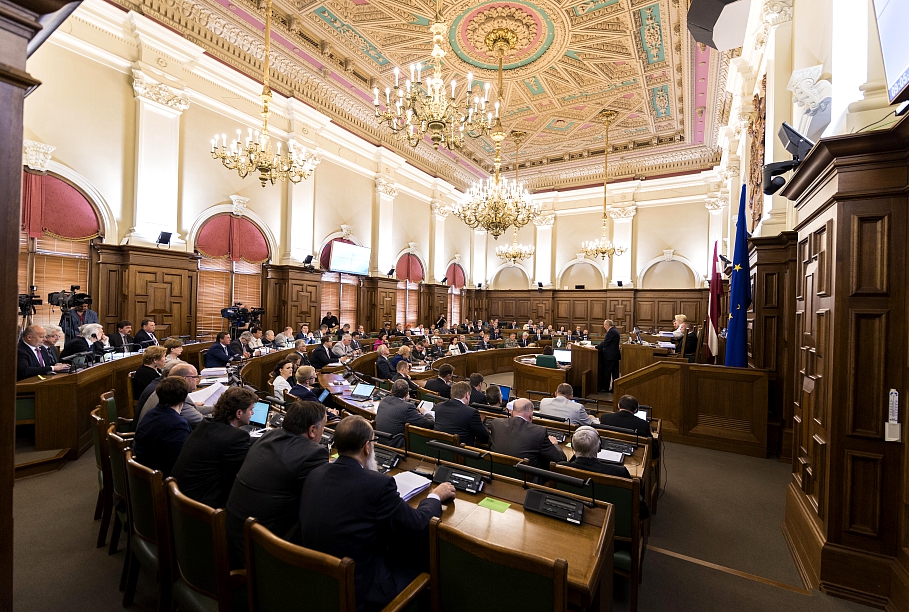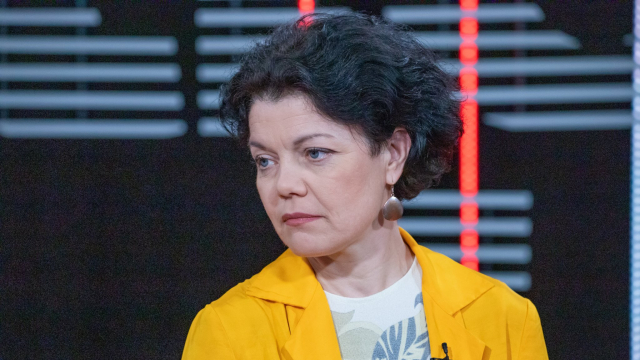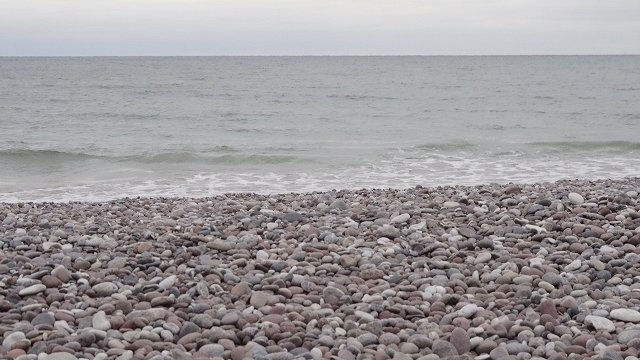Even though 68 MPs attended, a quorum was not reached during the vote. Votes from at least 51 MPs are required to form a quorum. A total of 41 MPs voted for reviewing the matter, while 2 abstained.
In a phone interview to Latvian Television, Mārtiņš Bondars (Regional Alliance) told in an interview that he is worried that the background checks for the refugees would be insufficient, so there is risk of terrorism. He also said that there's a risk of the refugees carrying infectious diseases, mentioning the Ebola virus.
Ainars Latkovskis (Unity) took the stage, carrying a picture of a NATO fighter plane. He stressed that solidarity is required in this matter, just like the NATO states would express solidarity about the security of the Baltics.
Earlier in the day, Augusts Brigmanis, Saeima fraction leader of the Greens and Farmers Alliance told Latvian Television that calling the session was devoid of any sense. He said that it is wrong to pursue political gains from the refugee matter.
Brigmanis also said that there's some tension within the coalition because of this matter.
Later, Kārlis Šadurskis (Unity) told journalists that the National Alliance - a coalition party - has "carelessly played with the state" by signing for starting the review, and that PM Laimdota Straujuma should dismiss Rihards Kols (National Alliance), the Parliamentary Secretary.
Meanwhile, Raivis Dzintars (National Alliance) called the instigated lack of a quorum "political hooliganism", implying that the MPs present from the other coalition parties didn't vote intentionally.
"You can avoid giving explanations to your colleagues. But you won't be able to avoid giving explanations to the electorate," said Dzintars.
EU leaders have decided for accepting 60,000 refugees over the next years. This will relieve Italy and Greece, the countries that are accepting the bulk of the refugees, and will re-settle 40,000 people who have arrived to these countries.
Europe will also house 20,000 refugees from camps outside the EU, for example, Jordan, where conditions are particularly harsh and where children have gone without education for years.
The government has announced plans for accepting 250 refugees over the course of two years. Before, there had been talks that Latvia would accept 737 refugees.
































